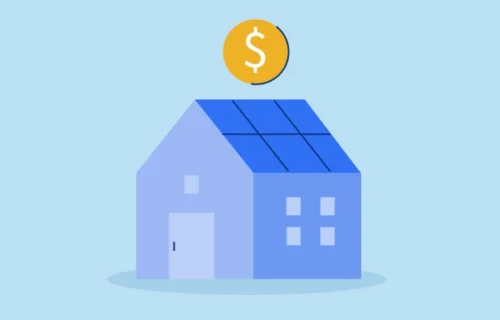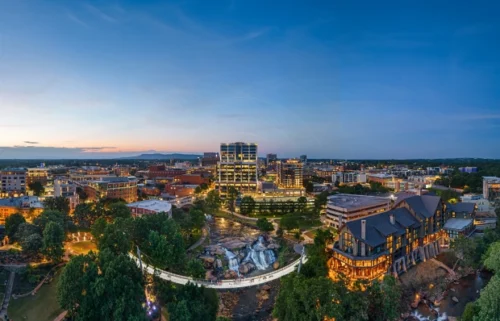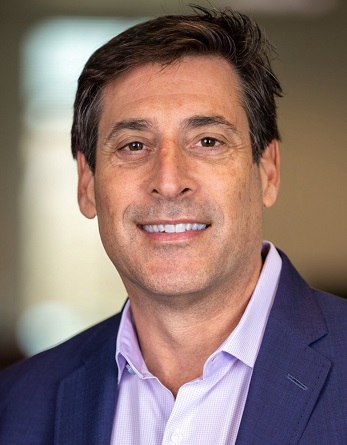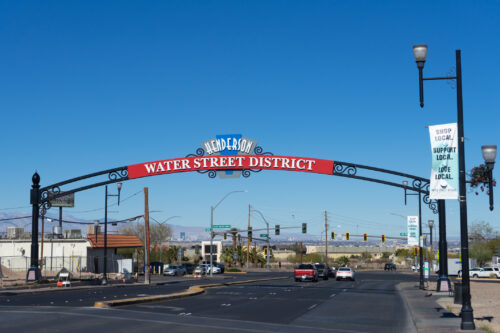
Connect with a Lima One expert today!
If you’d like to know more about this topic or see how it applies to your project, let’s talk.
Ep. 10 – ER Doctor, Triathlete… Real Estate Investor?
Dalton (Speaker 1)
Emergency Medicine Physician competitive triathlete, real estate investor. Those are three distinct full-time jobs. But this week's guest does them all. Dr. Tiencia James and I talked about how one balance has a wild schedule like that, above all else, her foray into real estate investing, why she prefers multifamily to SFR and how the human body can swim 2.4 Miles bike 112 miles and run a full marathon. All in one race. I thought I was doing all right on my peloton. Oh, well. Thanks for joining. You're listening to the real estate of things podcast.
Speaker 1
Welcome to the Real Estate of things. I'm your host, Don Elliot Tiencia James, thank you so much for joining.
Tiencia (Speaker 2)
Thank you so much for having me. I'm excited to be here.
Speaker 1
Absolutely. So the idea of having you on this podcast started a couple of weeks ago, a colleague of mine sent an article about you, I immediately sent it to my wife. She's head of infection prevention and quality control at a long-term care facility. So she's in health care. And for listeners, you are in healthcare as well. You're also known as Dr. James, right here, your emergency medicine physician, it was scratching out some notes before our episode. And I wrote down superhuman, I think I described as a superhuman. You're an emergency medicine physician. You're a high caliber triathlete, and you're a real estate investor, I only have one job, and I feel like I don't have enough time in the world. What in the world drives you to just do so many things at such a high level? What's deep down?
Speaker 2
You know, it's interesting, because I think that I've always had different passions in life. And early on, when I was younger, in college, you kind of feel like you have to pick one, you know, you're going to go the doctor route, or you're going to, you know, go the athlete route. But as I've gotten older, I've realized there's enough room to really explore those things that kind of make you tick. And that's when the real estate kind of came into the picture and being a triathlete. So I actually think that I do well in each individual area, because there's other things where I can turn my mind off and focus on something else is very helpful.
Speaker 1
Okay, that makes sense. So it was the order of operations, medicine, triathlete, real estate investor,
Speaker 2
you know that order has changed, the order has changed a lot, I would say kind of early in my career, it was pretty much emergency physician, because the training is really intensive and time consuming. And as things have gone on, I realized that the only way to keep doing that and to keep enjoying it is to be able to shut it off. If you can't shut it off, when you leave the hospital. I mean, the rate of burnout is very high. And obviously now at COVID. You know, that's like 10 times as much. So really being able to leave the hospital and focus on something completely different allows me to come back and treat patients in a better frame of mind and be more focused and be able to be more attentive instead of just
Speaker 1
stressed. That's interesting, something that most people I feel like would think of as draining, right, you're, you're running or biking or swimming like that, that conjures up images of sweat and exhaustion, but, but it really sounds like that is the core of what recharges you mentally and emotionally.
Speaker 2
It does. I mean, it's, it's one of those things, you know, I mean, you know, a lot of people describe it, you know, you go on five-hour bike rides, and how stressful is that. But in my mind, I mean, I have seen so many sunsets and so many sunrises to go down the back of a mountain at 30 miles an hour on your bike with just the wind going through your hair really allows you to really make sense of some of the difficult situations that you deal with in the hospital. And when I come back to work the next day, some of my colleagues are very stressed. They're very overwhelmed. I think I have a very good sense of peace and calm because of the other side of things. So I really need that to reset and recharge.
Speaker 1
So a triathlon, you said run bike swim and the order though, is it a swim? Bike runs?
Speaker 2
Yes, swim has to be first. Otherwise you need a lot more doctors there.
Speaker 1
Yeah, exactly. Yeah, you know, do all that bike riding all that running and then my legs don't work and I'm, I'm out in open water. I can't remember if I read in the article or a podcast transcript of you, but you had a fear of swimming in open water at one point, right?
Speaker 2
Yeah, and honestly, I think most people do. It's totally different from swimming in the pool. swimming in the pool is very controlled. You follow the little black line you can see everything around you. And then you get into an ocean or lake and all the sudden either you can't see what's below you or you can see things jellyfish. other creatures, you have waves, and you get very disoriented because the body of water is kind of moving you, it's very hard to keep going straight. So that was a lot to get over. And then when you do a triathlon, you're starting with a bunch of other athletes. So if you can imagine a bunch of elbows and you know, getting hit in the face or kicked in the mouth and your goggles come off, and you're swallowing water, it's a very chaotic start. So that is terrifying. So that was one of the biggest things for me to get over to kind of get into triathlon.
Speaker 1
That sounds like quite a fear to overcome. And I think I grew up on the coast I grew up just south of Myrtle Beach, a little town called Murrells Inlet and I'm so I grew up poor ocean all the time. That's what you did. I kind of freaked out when I came up to the mountains for college because we didn't have the ocean. I was like, what do you people do whenever, whenever you don't have anything to do you don't go to the beach? What do you do? I'm an Open Water Diver. So like I took for granted the fact that most people don't grow up around bodies of water. Like you said, there's something completely different about even when I scuba dive my least favorite part every single time the first time I went, I was 12 years old and Mexico. And then the most recent time was a few months ago in Miami. Every single time I hate whenever you dive back off of the boat into the water, and there's a couple seconds where you're tumbling around. You can't really you don't have your bearings. And it's just like a bunch of darkness. That I hate it as much now as I did 20 years ago, almost side definitely get that that visceral feeling. So what you know, all of these things, what in the world? Does your schedule look like? It has to be a pretty disciplined schedule I would imagine. Just fit everything in.
Speaker 2
I think yes, and no, my schedule is very tight Sundays, I'm an ER doctor. So of course I work day shift, overnight shift, I work weekends, but then I have some weekdays off. So you know, some days, I'm up at three o'clock in the morning running, then going to work then coming home and dealing with a renovation project. But I actually think that because I have some odd days off in the middle of the week where the kids are at school and everybody else is at work, it actually gives me a lot of time to kind of work on other things.
Speaker 1
Yeah, that makes sense. So when did you do your first real estate deal? When was that?
Speaker 2
So that was in 2013. And that was totally by accident? Yeah, a lot of people get into real estate and it's very calculated, you know, they've read the books, they've gone to the conferences, you know, they are going to make passive income. For us. It was kind of, we kind of stumbled into it. So I have three kids. And at the time, in 2013, when I got into it, they were very young. So to go anywhere was several $1,000 in plane tickets, family of five. And you know, you have to bring the car seat and go to the airport, it was just a hassle. So me and my husband decided, well, let's just get a condo by the ocean, and somewhere we could drive to and take family vacations. And so I got a real estate agent. I told them what I was looking for in Fort Walton Florida. And I flew in the agent picked me up from the airport, she showed me five properties. And after about an hour I said okay, I want that one. And that's as simple as it was, I didn't do research on the area, the condos we were looking at were rental condos, so they all had income. already. I didn't look at that I wasn't comparing you know how much I was going to spend versus how much it would generate. And when we actually first bought it, we weren't even sure we were going to rent it. But then my husband kind of convinced me to give it a try. And so we did. And over the course of that first year, it was just really an eye-opening experience. I knew we were going to get money from it, but I didn't really know how much because I didn't calculate it. And we'd go to the mailbox, and you know, have a check for $5,000 or have a check for $8,000 during the summer and I was like wow, this is a lot easier than emergency medicine. And part of it was luck because it was 2013 and they were also constructing other hotels and other entertainment right in that area that I guess got completed. So two years later, that three-bedroom beachside condo that we bought for I want to say $250,000 was worth $500,000 So we were able to refinance it pull money out and then get quadruplex and that's when its kind of just the snowball effect took place and I really started reading the books going to your conferences and was very intentional about real estate investing.
Speaker 1
So you're just a natural you didn't have to You didn't have to go through the school hard dogs like so many people talk about you just you just felt it. This is the one and then just start getting that mailbox money right out the gate. I love it. So fast forward kind of throughout your real estate career, right that was that was eight years ago. What is your strategy look like today? Are you still focusing on buy and hold? Are you doing? You mentioned renovation projects? What's on the plate now?
Speaker 2
So you know, I started off with that. And that led us into getting a quadruplex. We were mainly dealing with residential. Over the past couple of years, we've gone commercial. So our focus right now his apartment buildings, especially value add deals. And so I started off doing syndications, investing in other people's deals. And then over this past year, is when we got our first small apartment in Atlanta. Cool.
Speaker 1
On the syndication side. I'm always curious about that, how did you find that opportunity? And how do you get comfortable with kind of putting your money out on just kind of a private project that's going on? Yeah, so
Speaker 2
I went to several different conferences, there was a variety of them. But every time you go to these real estate conferences, you know, you meet different people. And of course, I was interested in in apartments. And that's where I met a bunch of different syndicators, a lot of people will go to several different conferences. So as you go to conference number two or three, you see people again, you have conversations, you talk about your kids, you talk about your career, and you become kind of comfortable with who they are as people. And you know, that's where you develop that relationship. And then they start sending you the deals that they're working on. And for a long time, I never invested in any of them, I would just get them look at it, and then delete it. But when I was ready, then that's when I started to invest in their projects. But to answer your question, I don't think it ever gets comfortable putting your money. In some of those projects, there's always the risk that things will not go well, you can't get rid of that risk. So you have to go in, you know, with money that, you know, you could afford to risk in that regard.
Speaker 1
Yeah, incredibly sage advice that I think everybody's heard. But really something that you have to take that advice to heart 100% of the time, otherwise, you're just opening the door to be in a world of hurt. Whereas if you don't play that risk game, right, can put you in some peril. So hindsight, right, you, you went about it differently, you although there's a there's a friend of mine, who went about in a similar way, right, he set out to get a wasn't a beach condo, a Mountain House, right. And he says like worst case, I'm gonna spend spent a bunch of money to have a Mountain House, my family can go vacation app, right? That's the quote unquote, worst case, best case, we can rent it out enough that we break even. And then I kind of have a free vacation spot with equity that builds over time. That's kind of the neutral case. And then best case, I have a place where I can vacation, and this place just stays booked up. And I'm making money off of it. That scenario number three is the one for this particular situation. But it sounds like a similar one on your end that you didn't set out necessarily to be a real estate investor, right? You just wanted to get into real estate for the sake of family vacation, and that that's what opened the door and kind of got you hooked on I can definitely see checks in the mailbox and you're like I there's, there's something to this, if we replicated this, then we'd be able to have more checks in the mailbox, which nobody's gonna scoff at that.
Speaker 2
But it will say, you know, it hasn't been a completely upward trajectory. Obviously, you fondly remember all the things that went right, and, you know, these awesome deals, but we've had a lot of hiccups during the way so with the quadruplex that we bought, this was our first-time doing value add. And you know, that was very exciting for me. But it was one of those things where we got different quotes and from different contractors and we went with the cheaper contractor, they were dragging out the project and then we went to finally go and check on it and literally had to do it all over. So it was almost like 1000s of dollars that you just like threw on the sidewalk like very hard lesson. We didn't go after them because there was no point I just accepted that as a very expensive education in the world of value add and how you select contractors how you deal with projects, but from that learning experience now that we have our first small apartment, we've had it for almost a year now we bought it last February, and we're almost done with the renovation and what I learned in that last project has really helped me with this one drive this renovation and it's going extremely well. So there are going to be hiccups.
Speaker 1
So walk me through some of those lessons things that you know how let's start with the contractor one right like how did that experience change the way you vet contractors?
Speaker 2
What I've realized is that the cheapest quote is usually not the best you have to you know really look at references and look at the contractor themselves. So that was mistake number one I got three different ways Smells like a cheapest one. Let's go for that one. The second mistake is at that time, the property was being managed by a property manager, which I think is fine. But the property manager was managing the renovations. And that, for me was big mistake number two, when you start doing renovations, no matter how good the contractor is, when they get in there, things are going to come up, they may peel back a wall, and all they thought they had to do was, you know, put up some sheetrock and they may find wood that's rotted, so you have all these little micro decisions that need to be made. And if you're not the one that's making it costs can kind of get away from you, and also the direction of the project, you know, you might not want a luxury renovation in a working class building. So for this project that we're doing, the contractor is answering to me, we've got a great friendship, I've seen his kids and his wife, my kids go to the same school, you know, he's on my phone, probably more than my husband these days. So it's good, like I I'm very much up to date about what's going on. And when things kind of take a turn, I'm able to make decisions at that point, as opposed to coming in at the end. And the project has just gone way left. So that was just a huge point. And the other thing is, you know, anybody who's dealt with renovations probably know, I was new to the project, I thought, okay, when you get a quote, this is what the price is going to be. And this is how much I will put aside for this particular project. But you never know, things come up. And the prices of wood went up in the midst of renovations and the cost changes. So now I'm allotting a lot more cushion money to certain projects, so that I have more of a buffer and these things aren't as hard to deal with in real time.
Speaker 1
Do you have or maybe not your you know, you don't have to give away the secret sauce. But is there a, I was talking with one investor, Courtney Newman's who's also in Atlanta, and he said, especially on the multifamily side, his contingency is 15%. He's like I always project up 15% Are you in the same ballpark? Or materially higher or lower?
Speaker 2
Yeah, I would say that's probably a good projection 15 to 20%. And if you don't need it, great, you can do something else with it. But if your margins are really tight, you know, you're gonna get surprised sometimes. I mean, it's amazing how quickly things can change.
Speaker 1
Yeah, it was wild, especially Yeah, COVID, the pandemic, all of the supply chain issues, labor, permitting, all everything came to a head at once everything was different in one way or another. You know, home price appreciation was probably the only thing that was materially spectacular that everybody was happy about. Everything else is just a wild mess. So yeah, any anyone who had a real estate project going on, who has had a real estate project going on over the last 18 months has had to deal with everything you mentioned, and even more. Let's talk a little bit about the Atlanta market. You and I were catching up on Atlanta, as I sit two and a half hours outside of Atlanta, with a big asterisk, right? It depends on what time of day you're coming through. I always, you know, you get within a half hour of Atlanta, and then that shoots up to like, it's an hour and a half. But I love Atlanta. Every time I go I love it more and more. And the growth has been absolutely incredible. There. Atlanta has really grown out and it has grown up. And I was there a month and a half ago for music Midtown big festival that happens every year. And you just see not skyscrapers, you just see like huge cranes, any direction you look, it is wild. So talk to me a little bit about you know, pockets of opportunity. What neighborhoods are you investing in? Do you investor friends in the area what's, what is the hottest of hot in Atlanta.
Speaker 2
So you know, it really depends on what you're interested in and how you want to make money, you can make money on any type of property and Atlanta's a very strong market. My kind of sweet spot is I like properties that are more geared towards young professionals looking at rents above $1,000. That's kind of my sweet spots. That's where I like to renovate, because you can recoup that in some of the bumps in the rents. But obviously you can get Class D as well. The one thing I would say about Atlanta is I grew up here so I went to elementary school high school, and Atlanta is a very interesting city Atlanta is not Atlanta. So you'll see people who will give you an A deal from Atlanta and in Midtown is completely opposite from by the airport or even it will change by street, you'll be in a really good neighborhood, and you turn the corner and now this is no longer a good neighborhood. And so you kind of have to know the nuances of that when you're investing even if you're doing a syndication because on paper. A lot of these deals can look very good until you see exactly where it is where I'm investing right now is in Virginia Highlands. We have a property there. That is right kind of in the center of a lot of the developments in Atlanta, it caters a lot towards young professionals. So it's got a very, very strong rental market. And then I do other stuff kind of outside Atlanta too. But I will say when I first started a couple of years ago, you could see cap rates that were seven, six, now we're looking at, you know, fours and even going lower than that, but the rents are extremely strong. So in the apartment that we just purchased, most of the units are two-bedroom, one bat, and we got it was renting for somewhere between 11 112 100 and the unit's we've renovated we're now upwards of 1650. After the renovations, and we don't even finish the renovations before we have a waitlist and we have a tenant and the manager is harassing us is how quickly we can get finished, I almost think we can go a little higher. So the rents are extremely strong. So it's a very good market.
Speaker 1
Yeah, and you have so much, especially on the multifamily side, you start to look at things that you don't look at on the SFR side of the fence, like questions about employment, right, like are there any big drivers of employment that are going on? Of course, in the Atlanta metro area? The answer is yes. Right. Microsoft, Salesforce has a big presence there. So those are things that are huge drivers that point to continued growth. Yeah, I think a big, big question on, especially the lending side of the fence, or my day job is, what is normalization gonna look like? Right? So many places have had 1020 30 40% year over year growth, which is just astronomical. And certainly nobody's anticipating a crash type pullback. But the question is, what's the what's the normalization going to look like? And Atlanta has beautiful market where take out the national HPA that's going on, and kind of all ships rise with the tide. You have so many things going for the Atlanta market that are causing that organic, real estate growth, right.
Speaker 2
Yeah, I mean, I think it will continue to go up at least for another couple of years, we've got a lot of different drivers, not only internal job growth and things that are going on in the city of Atlanta. But we also have people who are coming from New York and California and some other places where prices are astronomical. And they come to Atlanta, and they have the same kind of resources and activity, and they think it's cheap. So what they're willing to pay is a lot different. So we I have seen pockets where that's actually pushing up rents, but you definitely whatever property you're looking at, you have to know, the tenants that are there and the type of people who gravitate and when I was looking at the apartment that we currently have, I had another one I was looking at before that one and a lot of people just because of where it was situated, you know, we're in the restaurant industry, and then COVID hit. And so obviously, you know, that was a much riskier deal. And I don't think you would have gotten the growth in that particular submarket.
Speaker 1
Yeah, you touched on a point that not the first time I've heard of it, which is, you know, Northern, Northeastern, and West Coast, folks moving into Atlanta, like crazy. And it's like, hey, I can I'm gonna sell my place north for a million, and I'm gonna buy something that looks the same, right? So for all intents and purposes, same property, and I'm going to be able to get that thing for 700 and Atlanta, and I'm going to be able to pocket some money, or I'll be able to, you know, maybe that would normally go for seven, but I'll have no issue saying hey, oh, 750 Let's do it all day. So it really helped bid up the market in some areas, but that it all ties back to just the organic growth and the ability to continue to grow out as well. So do you know we've talked a lot about the apartment complex investing side of the fence? Do you have any SFR exposure to that single family residence or you really focus on?
Speaker 2
I initially, when I started after the condo, we purchased a few single-family homes and then we got the quadruplex which is still residential, not commercial, and we haven't sold any of those are still doing well. Obviously, as you go up, you have larger profit margins. But I was really surprised because you know, in COVID Hit we didn't know what was going to happen, but I didn't have any delayed payments. I didn't have any nonpayment. So they were still very strong markets and not directly in the city of Atlanta, more working-class sort of property. So it all of them did really well. So we still have them now.
Speaker 1
Yeah, that's beautiful. So forward flow, your strategy is really going to continue to say in the multifamily apartment side of the fence you think and commercial asset. Yeah,
Speaker 2
I think I want to get bigger, so I wanted something small because of the bad experience I had with the quadruplex renovation. I was like if this goes completely sideways, I want it to be able to cover it and know that I was only going to risk my money. But once I kind of get more comfortable and get more experience, obviously I work in a hospital, I'm around a lot of people who have a lot of extra money and no extra time who are looking to put money into deals. And so that would probably be a next step. But for right now, I'm really kind of enjoying this small apartment space.
Speaker 1
There you go. You don't have to share, because this could be a personal thing. But do you have? Do you have a unit goal? Are you like, I want to hit? We know, X number of units? Or what's How do you? How are you going yourself around real estate investing right now? Yeah, so
Speaker 2
I don't have a unit goal. I know that's very popular people. So I got 100 doors, or how many doors do you have? For me, it's more about the passive income. And when you look at apartment, when people own apartments, there's different ways you can own it, a lot of the larger deals, they're on kind of a five to seven year model, you get a place, you fix it up, you add value, and in five to seven years, you sell it, you give money back to the investor, you take the property, the profits, and you do it again, I kind of like the thought of building something of building a legacy of something I can pass down to my kids. So our investment horizon is a little bit longer on each individual property. So I can afford to put more money up front because I have a longer time period that I can recruit the profits from that. And what I look at it is passive income. So what me and my husband said was, you know, how much do we really want to come in a month that we don't have to work for. And that's how we are looking at each deal, you know, this property will give us you know, 2000 3000 a month, this property will give us x amount. So we want to reach a certain amount so that what we're doing on the clinical side is optional. And I think that's really important because the landscape of medicine is changing drastically.
Speaker 1
Yeah, I feel like that's the best approach the optimal approach at least a very opinionated, or like pure opinion. So no judgment for anyone who has unit goals. But at the end of the day, this is about dollars and cents, right? And so a goal that goes around income dollars in the bank, that's what I feel you on that that's what that's what makes sense to me the most. I want to pick your brain a little bit more about the triathlete side of the fence because I just find this fascinating, I love to swim bike run, but all of it together, that's a lot. So how long? How long does it take to complete a triathlon for you what's your best time or your target time?
Speaker 2
So that you know the times are different. It's a little bit different from I know most people are probably familiar with running. We just had this Chicago in the Boston Marathon and you kind of have a pace triathlon every course is different. So a hilly bike course 112 miles on a hilly course is a lot different than 112 miles in Florida. So you might have a bike split of six hours in Lake Placid and five hours in Florida, the same thing with the run. And then you add the elements. I've done triathlons where it was 97 degrees. And I've done triathlons where it's 60 degrees. So being out there exercising for 10 plus hours, you know, the elements start to kind of come in. But for Ironman, it's a 2.4-mile swim, it's 112-mile bike, and then a marathon run, and you get up to 16 or 17 hours to finish it to be an official finisher. My best so far is in the 1030 I think it was 1030 for at Ironman Florida, and that was right before the pandemic. So I think that was 2019 was my fastest one. The Florida is also very fast course, the concepts that have been out there for 10 hours, often it is swimming spinning that that is just absolutely crazy.
Speaker 1
What do you have? Is there a ballpark period of time where you have to push through? Does that make any sense? Like you're hitting a wall? Is there a consistent? Is there a consistent point where you're like, oh, my gosh, this is the point where I always hit like, I really need to buckle down mentally right now?
Speaker 2
You know, it's not a consistent point. Every race is different and where you hit that wall, and each of my races has been different and unexpected. But I think you know, it's interesting, because you have emergency medicine, you have trap line, and you have real estate. It all really is kind of interwoven in my life. And I think with the endurance athletes, one thing that you have to do, which is really good to use, and other aspects of your life is you really have to be in the moment. So if you get to the starting line and you think oh my gosh, I have 140 miles to do. You're going to be tired after the first minute and there are times in the water where you're sucking water. You know, your goggles come off and you're gasping for air If you would ask me at that moment, could I keep going for another 10 hours? I would say no, absolutely not. So you stop projecting, you stop thinking about, well, how am I going to feel 10 hours from now or three hours, and you just focus on the moment. And if you're feeling bad, you know, the next minute or two, you may feel better. And if you're feeling good, in about 10 minutes, you may not be feeling good, but you just focus on that block at time, and you get to the end. And it's amazing. I mean, I've finished so many races, this last one I did was Ironman Chattanooga, which just happened a couple weeks ago. And I got into the run, I got off the bike I was I was feeling pretty good. And then I started having severe cramping, I was having some GI issues. And I was looking for my husband, because I told myself, if I see him, I'm having just take me home, like there's no way that I'm going to do this for 26 miles, like it was just crazy. But I actually finished, and I did very well in the race overall. So I usually apply that to a lot of other things in my life, whether you know, real estate, from what we've talked about, it does sound like it's been pretty smooth sailing, but definitely making the conversion from single family to commercial was really challenging for me, just getting into that realm. And I don't know, if you've had people who've, you know, said the same thing, but it can be definitely a blow to your ego.
Speaker 1
It's so different. Alright, you would think that for unit, which is the top end of single-family residence, or just say SFR is one to four unit, you think what's the difference between a quad and, you know, a 12-unit project? And the answer is a ton. It's massively different.
Speaker 2
Yeah, I mean, just getting into the realm is totally different. I feel like with single family, you know, you see a property you make an offer, things are pretty smooth. In commercial, it's a lot more about relationships, and who you know, and so it was interesting when I decided, Okay, I'm going to go into apartments, you know, I was kind of green at that point. And I thought I can just, you know, call some commercial agents and go take a look at properties. So I called this one local commercial agent who met me at one of the earlier apartments I was looking at, and you know, as he's getting out the car, he's kind of looking at his watch, almost like I'm wasting his time, he kind of shows me a little bit of the apartment. And you know, that's it. And, you know, I'm used to being in the hospital where I'm respected where I have a position of authority. And I mean, he was totally blowing me off, because I have no experience. I haven't been in this room, he doesn't know me. And that was really hard. So then I was like, Okay, well, I'm gonna do it different than next time. So I got a property manager, who also invest in Atlanta to come with me to see the next apartment, which the same agent was selling the other apartment. And it turned out that the property manager does triathlons, too. So we've had that kind of connection. But he actually manages some of the commercial agents, other properties. So when he saw him there, he was like, oh, hey, man, how's it going and a totally different person, I actually got like a nice tour of the property that deal fell through to because of COVID. But each time I got kind of a little bit further, and even though it wasn't successful, there was something from each offer that got turned down, that led me to the next one. And finally, to the one that was successful. So it was definitely you know, kind of a long game. I felt like at one point like this is just not going to happen, but and now that I've closed on my apartment, now I keep getting random people calling me asking me if I want to take a look at this deal, because it's about relationships. And it's about you know, they don't want to entertain tire kickers. So when they know that you're really going to pull through it something they pay more attention to.
Speaker 1
It is funny how hyper relational the commercial side is compared to SFR. You can either sit at home on your couch and buy a single-family property and never step foot in it and be fine and find it on Zillow or whatnot. But yeah, it is it is so different. I think about you mentioned conferences, the multifamily conferences that I've attended, you see a lot of the usual suspects. And yeah, it is it is a club much more so than the single-family side of the fence. And it sounds like from your experience, you just have to kind of grind to break into that club. And once you like the real barrier of entry is whenever you own a commercial asset, then you've kind of put the first stamp in your passport of being in the club, right?
Speaker 2
Yeah, and you know, you just I think, you know, when I think about triathlon and everything, it's about sticking to the process and not getting so focused on the ultimate goal. And so you know, real estate obviously, if you're going commercial, your goal is to close on an apartment, and if you get really good focused on that every time you get turned down, you know, your offer gets ignored, they don't call you back, it's very easy to get discouraged and just say, you know, I'm not cut out for this. But if you focus on the process, which is, okay, this week, I'm going to call this many agents or this week, I'm going to tour at least one property or I'm going to analyze one deal, or you know, and if you stick to that, eventually it's going to build up and it will become something. So I think you really have to focus on the process and continuing to put work into that.
Speaker 1
Yeah, the perfect spot to wrap it up on that beautiful point of advice. Next time I'm in Atlanta, we're gonna go for a run, we need to keep it like under five miles, I'm not gonna be able to go on a 26-mile journey with you. I, I mentally am not tough enough just yet. But maybe one day, I'll do a third of a triathlon with you. We'll go for a swim or a bike, or on one of the three.
Speaker 2
Yeah, that would be awesome. We could even do a relay. So that'd be great. You have to bring one of your friends.
Speaker 1
Bingo. Hey, hold me to it. We will do it. Thank you so much, Dr. James. You're an incredibly interesting person and I really enjoyed getting to know you a little bit more.
Speaker 2
All right, thank you Dalton. Thank you so much. Thanks.
Speaker 1
Are you a real estate investor looking for the right lender that can finance all your deals and help you scale? Lima one capital has the best suite of loan products in the industry. Barnett whether that's fixin flips, fixing holds, building new construction, or buying rental properties. They have incredible financing solutions for it all. A reliable common-sense lender is one of the most important parts of your investment team. And that's exactly what you get with Lima one. Let Lima one capital show you how they've helped 1000s of real estate investors scale and increase their wealth. Check out Lima one.com or call 800-259-0595 To speak with a consultant in preparation for your next project. Thank you for joining us today on the real estate of things podcast, subscribe and tune in weekly for new content from the industry's best. While we continue to unpack the nuances of this dynamic market. Follow us across social media for additional insights and analysis on the topics covered in each episode. And remember to rate review and share the show.
*Transcript is automatically generated from interview.
Subscribe for More Insights
Get the latest industry news & Lima One updates.









